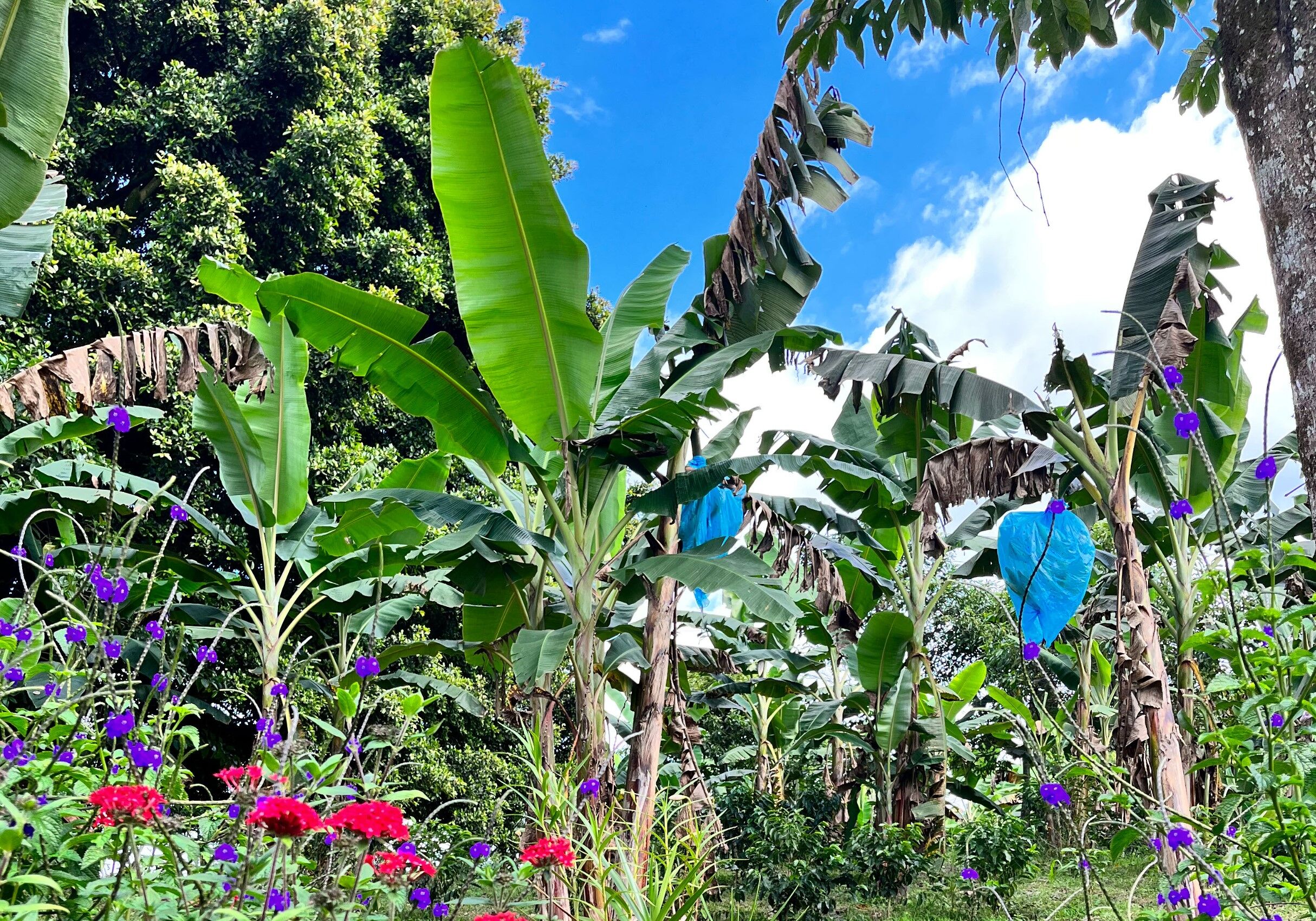
What are the benefits of pollination for coffee production?
As we wait for the results of the Flower Corridors project, which we carried out in Colombia with Sudus and De'Longhi, I wondered about the impact of pollinators on coffee production, as acknowledged in the scientific literature. If we are convinced of their benefits, how beneficial are pollinators?
Why do colombian farms lack pollinators?
Firstly, the traditional production system in Colombia has long sought higher yields by exposing the coffee trees to the sun. The aim? Increasing the density of plants per hectare, with more resistant and productive varieties that in turn require higher inputs.
Although in the short and medium term, there may be an increase in coffee volume produced per hectare due to the stress generated to the plant. But, this way, deforestation is generated, as well as contamination of the coffee trees with pesticides.
So, in the long term, what will we see? A decrease in the life of microorganisms, a considerable reduction of organic matter and minerals in the soil. Last, but not least: an imminent loss of biodiversity of fauna and flora and pollinating agents.
How can pollinators increase coffee production?
In monoculture, and without shadow trees to protect them from the sun, plants grow in a soil with less and less nutrients. This makes them more susceptible to diseases, depending on climatic factors. Do you believe that pollination in a diverse ecosystem can benefit the cultivation and production of coffee?
Studies carried out both in producing countries in Latin America and Africa have shown that pollination can increase the fruiting of Arabica coffee trees by 10 to 30%. In these farms, with a great richness of bees and insect species, the cherry production goes up by 20 to 30%.
What about quality?
In addition to the quantitative result, animal pollination can also improve coffee quality, measured mainly by bean size and weight. However, it has been shown that not only the abundance of pollinators, but also the richness of pollinator species positively affects coffee fruits.
Therefore, the more biodiversity that can be maintained in the ecosystem, the better it is for the production and, of course, for the sustainability of our planet.
You may be wondering, but if coffee is self-pollinating, why is cross-pollination beneficial? There are studies showing that the plant benefits from other pollination, with a reported increase of 10-30% of fruits for Coffea arabica L., compared to trees only self-pollinated.
What is the major benefit of pollinators for coffee production?
- Reducing the use of pesticides and agrochemicals on cultivated land. This will improve soil conditions and ecosystem symbiosis.
- The reduction of pest and disease attacks by increasing the life of microorganisms and nutrients in the soil.
- Increased productivity and crop yields!
We invite you to check and explore our Senderos coffee that comes from the project we worked on with Sudus and De'Longhi, about planting flowers and pollinators in coffee farms.
This project has been in progress for about one year, in Quindío, Colombia. And the results of the comparative biodiversity studies on the project farms will be ready in a few months.
Sources :
Did you like this article? Share it with your community:
